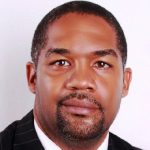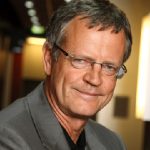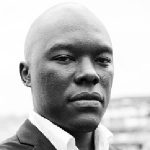Pascal Boniface launched the discussion by asserting that
sport creates national identity, speaks to individuals and
aids international relations owing to its soft power aspect.
He gave the example of the World Cup winner, France, and
how their victory has propelled them onto the world stage.
For William Blick, sport is a multibillion business whose
growth is bigger than the Gross Domestic Product of some
countries. He added that sport is a unifier of countries and
gave the example of North and South Korea who put aside
their differences to form a unified Korean sports team; and
South Africa’s Nelson Mandela who used sports to help
unite his divided country during apartheid.
Carole Gomez highlighted the huge investment companies
are making in the industry, an indication of its significance.
“Big tech companies like Google are now investing in sport.
Even civil society is getting on board by encouraging
promotion of gender equality and engagement of people
with disabilities in sport.”
To emphasise the soft power aspect of sport, Gomez
pointed out that newly independent countries look to
sport to reach out to the world. “The first thing countries
do when they become independent is ask to become
members of FIFA. Because that way, they can meet people,
be recognised as an entity and gain many other benefits. ”
With agreement reached on how significant
sport is as an industry, the panellists addressed
the question of whether this significance is
appreciated by individuals and governments.
Blick said that in Uganda, the government has invested
in sport infrastructure, notably the high altitude training
centre in Kapchorwa district.
However, Penninah Kabenge disagreed, arguing that in
Uganda, parents only look to academics for their children
and not sport; while different stakeholders, including
leaders, the media and government do not appreciate the
industry enough. She decried the absence of professional
coaches and the dilapidated sports facilities in the country.
Elly Mwesigye thinks that in Uganda, the government
needs to invest in sport and not just in individual athletes
who make strides; make available professional actors
and ensure that athletes, known or unknown, get the
opportunity to participate in sport of their choice and that
suits their abilities.
Kampala Geopolitics Conference





